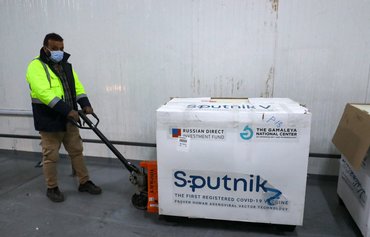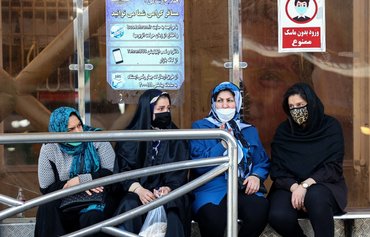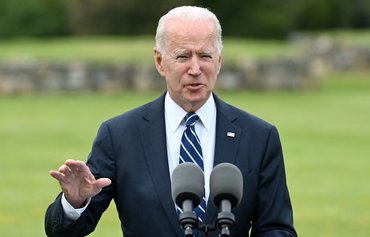WASHINGTON -- Half a million COVID-19 vaccines began shipping Thursday (July 15) from the United States to Jordan in the latest stage of a global US effort to overcome the pandemic, officials said.
A senior White House official told AFP: "500,000 doses of Pfizer will begin to be shipped to Jordan from the United States. These doses arrive in Jordan on Saturday."
According to the official, who spoke on condition of anonymity, the doses are being sent in a direct arrangement with Jordan, rather than through the international COVAX programme.
"We are proud to be able to deliver these safe and effective vaccines to the people of Jordan," the official said.
"We are sharing these doses not to secure favors or extract concessions... We are doing this with the singular objective of saving lives."
In addition to 80 million doses already set aside for allocation worldwide, the Biden administration has committed to donating $2 billion to the COVID-19 Vaccines Global Access (COVAX) programme.
It is also purchasing 500 million Pfizer-BioNTech vaccines for the African Union and 92 poorer countries.
Jordan, with a population of about 10 million, has succeeded in sharply tamping down the pandemic.
According to the World Health Organisation, there have so far been 9,855 deaths in Jordan from the coronavirus, with the peak in fatalities occurring this March.
Beyond Jordan, US vaccine donations have shipped out as far afield as Vietnam, Honduras and Bangladesh.
Chinese, Russian vaccines
China kicked off its vaccine diplomacy campaign last year, with President Xi Jinping pledging to provide a shot that could be easily stored and transported to millions of recipients around the world, particularly to poor countries.
But China's vaccine diplomacy efforts are only as effective as the quality of the product it is offering, and evidence shows the quality is lacking.
In April, Gao Fu, head of the Chinese Centre for Disease Control and Prevention, admitted that the agency was "considering how to solve the problem that the efficacy of existing vaccines is not high", local media reported.
He said the current vaccines, including doses from Sinovac Biotech and Sinopharm, "don't have very high rates of protection", the BBC reported.
Russia meanwhile has unleashed a massive propaganda campaign to promote its Sputnik V vaccine, in tandem with campaigns smearing Western-made vaccines.
But rushing to be "first" has come at the expense of quality control, global health analysts have said.
Several countries, including Brazil and Slovakia, have raised concerns in recent months over the composition of Sputnik V vaccines, with Brazil stopping the import of the vaccines in April.

![Jordanian pupils return to school for the first time in nearly a year, in the capital Amman, on February 7, as educational institutions gradually reopen after a governmental directive to ease COVID-19 restrictions. [Khalil Mazraawi/AFP]](/cnmi_am/images/2021/07/15/30742-jordan-covid-school-600_384.jpg)






